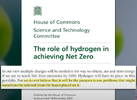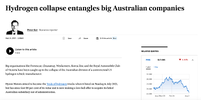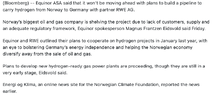JohnDe
La dolce vita
- Joined
- 11 March 2020
- Posts
- 4,614
- Reactions
- 6,835
The EU has some pretty strict requirements for anything to meet their "green" criteria.
The majority of our gas sales goes to Asia and China. Only a small percentage is currently going to Europe, and the same would probably be true for Hydrogen because of distance, competition & trade treaties.








